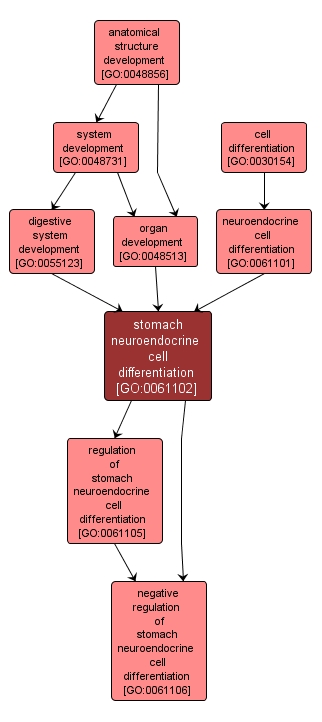GO TERM SUMMARY
|
| Name: |
stomach neuroendocrine cell differentiation |
| Acc: |
GO:0061102 |
| Aspect: |
Biological Process |
| Desc: |
The process whereby a relatively unspecialized cell acquires specialized features of a neuroendocrine cell of the stomach epithelium. |
Synonyms:
- gastric neuroendocrine cell differentiation
|
|

|
INTERACTIVE GO GRAPH
|














